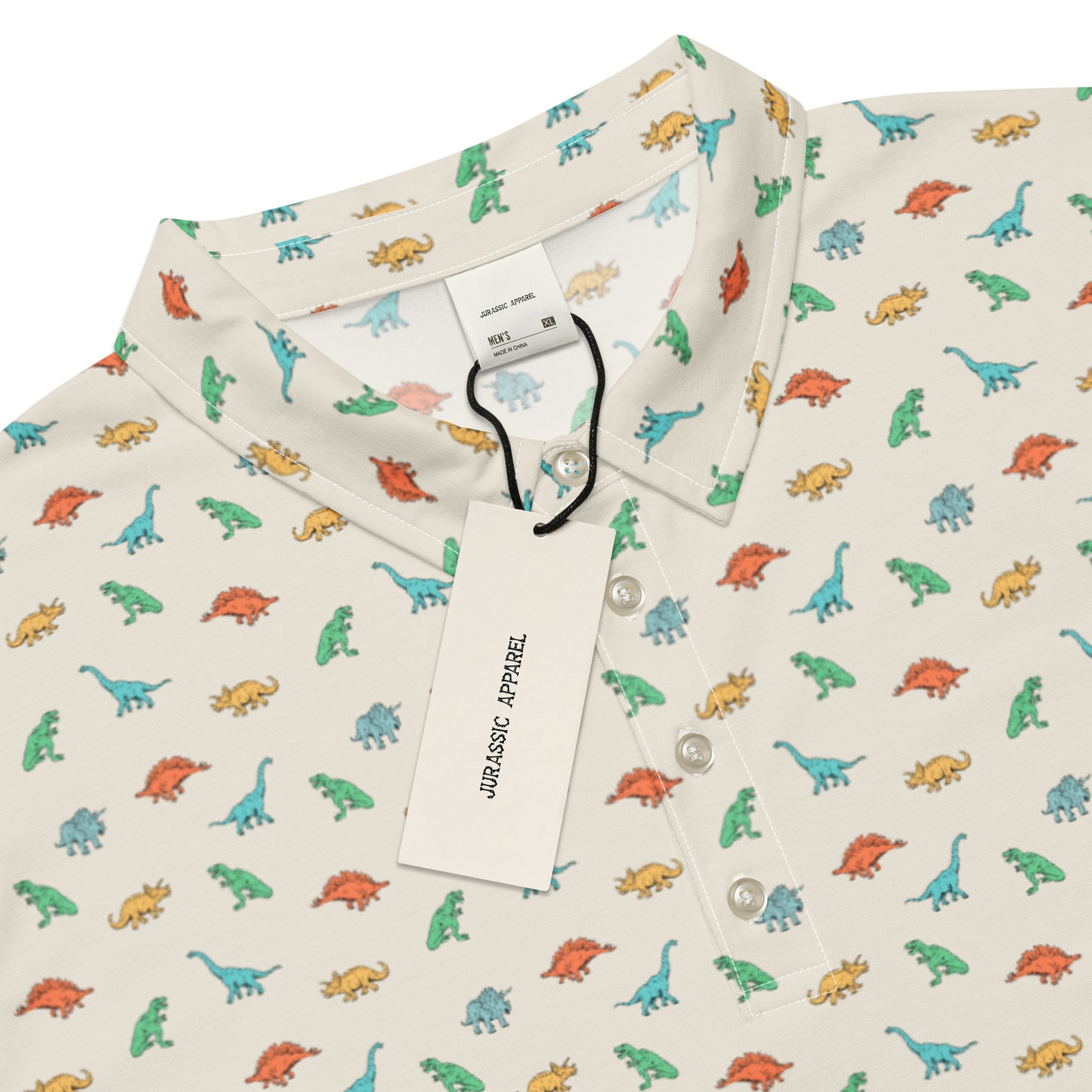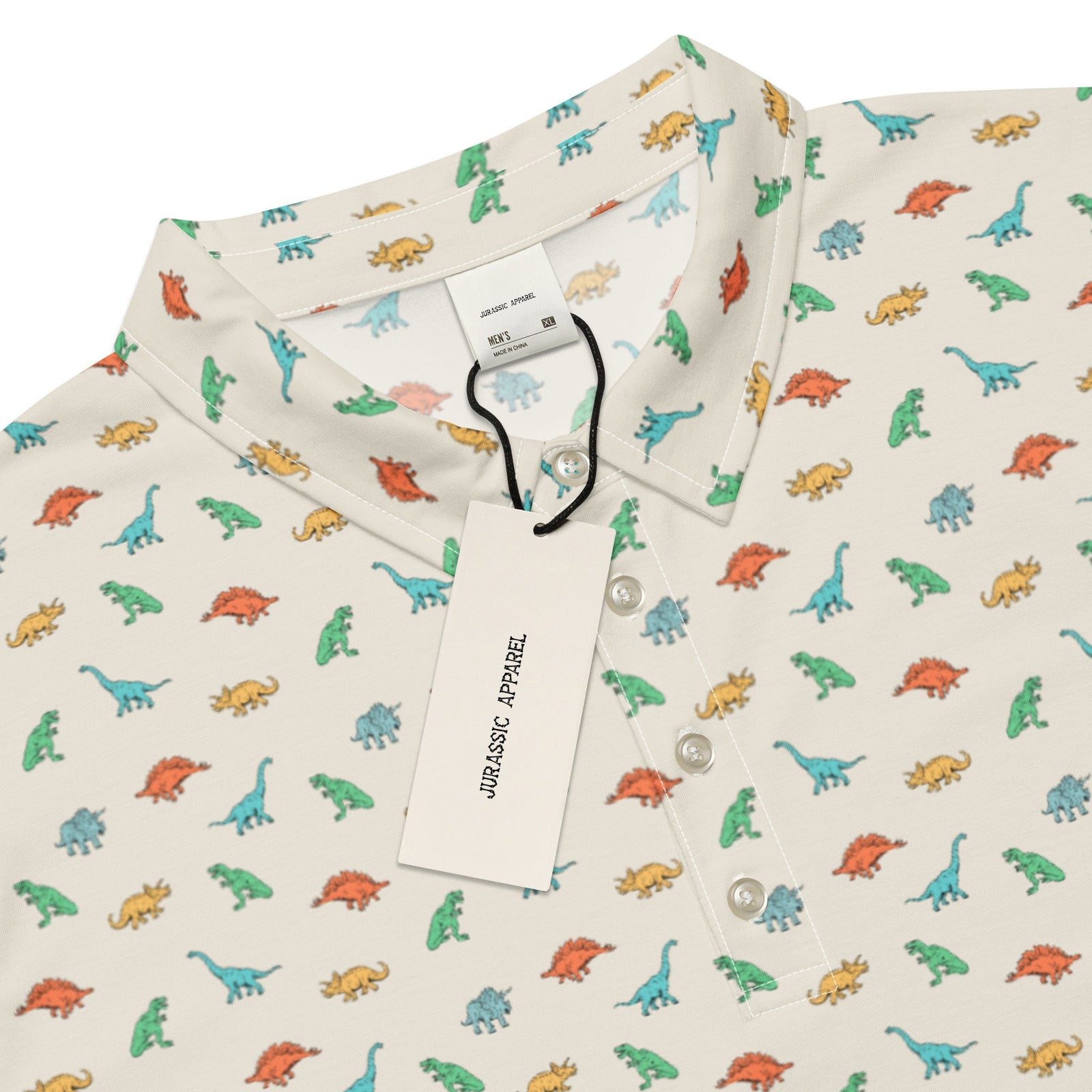Free Shipping On Orders over $75
Free Shipping On Orders over $75
Women's
Men's
Kids
Baby/Toddler
Accessories
Allosaurus: King of the Jurassic Predators
July 23, 2024 2 min read
Allosaurus: The Mighty Jurassic Predator
Dinosaur Facts:
- Dinosaur Type: Theropod
- Period: Late Jurassic (about 155-150 million years ago)
- Diet: Carnivore
- Length: Approximately 28-32 feet (8.5-9.8 meters)
- Height: About 10-12 feet (3-3.7 meters) at the hips
- Weight: Around 1-3 tons (900-2,700 kg)
- Notable Features: Strong jaws, sharp teeth, powerful limbs, and a distinctive crest on its head
Allosaurus for Kids
Meet Allosaurus!
Allosaurus, a massive carnivore that roamed the Earth during the Late Jurassic period, is one of the most fascinating dinosaurs. It was a fierce predator that could take down large herbivores.
What did Allosaurus look like?
Allosaurus had a large skull with sharp teeth perfect for tearing flesh. It walked on two strong legs and had relatively short arms equipped with claws. This dinosaur usually displayed a powerful tail that helped with balance.
What did Allosaurus eat?
As a carnivore, Allosaurus primarily hunted large herbivores such as Stegosaurus and even young sauropods. It used its speed and intelligence to ambush and overpower its prey. [1]
In-Depth Look at the Allosaurus
Anatomy and Physical Features
Allosaurus was a large dinosaur characterized by its elongated skull, which housed sharp serrated teeth. Its limbs were muscular, and it featured three main claws on each hand, allowing it to grapple with prey effectively. The dinosaur's body was built for agility, giving it an advantage as a pack hunter.
Behavior and Habitat
Fossil evidence suggests that Allosaurus lived in forested areas and was likely a social creature, possibly hunting in groups. They had a complex behavior pattern, enabling them to work together to ambush larger prey. [2]
Scientific Discovery and Research
The first Allosaurus fossils were discovered in the late 19th century, with the species being formally named by paleontologist Othniel Charles Marsh in 1877. Since then, numerous specimens have been found, providing researchers with insight into the behavior, diet, and physical characteristics of this remarkable dinosaur. [3]
Social Behavior and Hunting Techniques
Research suggests Allosaurus may have displayed complex social behavior, potentially hunting in packs to take down larger or faster prey. Their sharp senses and physical prowess made them effective hunters of their time.
Allosaurus in Popular Culture
Allosaurus finds its place in various forms of popular culture, often depicted in movies, documentaries, and toys. Its image captures the imagination as one of the formidable predators of the Jurassic period.
Ongoing Research and Discoveries
Paleontologists continuously work to uncover new Allosaurus fossils. Recent advances in technology, such as CT scanning and 3D modeling, are providing deeper insights into its anatomy and behavior.
Conclusion
Allosaurus stands out as one of the most intriguing dinosaurs, showcasing a blend of physical prowess and complex social behavior. As research progresses, our understanding of this magnificent predator from the Jurassic period continues to expand.














